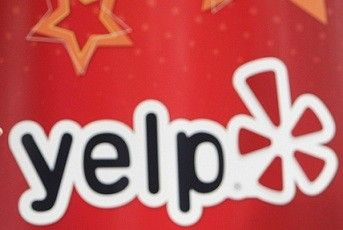Yelp Unveils New System To Identify And Shame Businesses That Pay For Phony Reviews

"Best food on the planet. No wait. Best service ever. Amazing experienece!” This is the kind of suspiciously enthusiastic, simplistic and likely phony review that Yelp and its highly sophisticated audit system have been going after for years. (Note: This is a hypothetical review.)
Now, the popular online review site is going public with its effort to seek and destroy fictitious reviews, along with the businesses that solicit them through outside payments.
“The allure of a page full of five-star reviews can turn even the most ethical business owner starry-eyed and persuade some to attempt to game the system by paying for reviews,” said Yelp on its own blog. “Starting today, when we’ve determined that there have been significant attempts to pay for reviews, you may see a warning that some shady practices may be at play."
Yelp has rolled out alerts for the first eight businesses it caught paying for reviews. Each will receive the consumer warning on its Yelp page for 90 days, unless Yelp catches wind that the reprehensible behavior continues, in which case the messages will be extended.
According to the New York Times, one in every five Yelp reviews is determined by internal filters to be false -- usually determined by highly favorable or intensely critical content produced by a new user. In order to further “game the system,” businesses have begun pay for comments from established reviewers on Craigslist.
To catch companies in the act, Yelp went took to Craigslist, according to the Times, and posed as potential review writers seeking money in exchange for falsified reviews. One pest company offered $5 to post copy they’d written. A moving company offered $50 for reviewer-created content. The highest rate, $200, was offered by a San Diego jewelry store.
“We have noticed that some of our larger, corporate-run competitors have been unfairly trying to get reviews written for them on Yelp, which puts us at a disadvantage,” the owner of the disgraced jewelry business told the Times.
With 78 million monthly visitors, according to the Los Angeles Times, and 30 million reviews, Yelp can make or break a business’ chance at snagging conscious, online consumers.
Myle Ott, a Cornell doctoral candidate researching online review deception, believes Yelp’s new public shaming policy will help curb the tide of phony reviews.
“My intuition is that public shaming would increase the risk and, therefore, the cost of posting fake reviews, which could reduce the prevalence,” he told the Times.
© Copyright IBTimes 2024. All rights reserved.




















